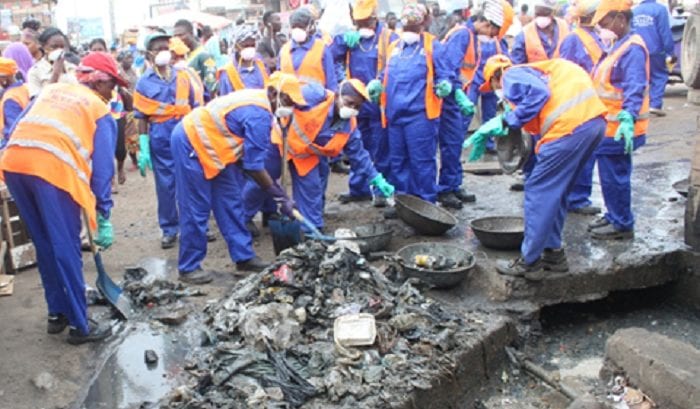Parliamentary Committee backs Zoomlion, opposes call for YEA contract termination

The Parliamentary Select Committee on Sanitation has opposed calls for the Youth Employment Authority (YEA) not to renew its contract with Zoomlion Ghana Limited, a subsidiary of the Jospong Group of Companies.
This position comes in response to recent comments by investigative journalist Manasseh Azure Awuni, who urged the YEA to terminate the contract over allegations of worker exploitation and breaches of contractual obligations under the sanitation model.
However, during a working visit to the Kumasi Compost and Recycling Plant in the Ashanti Region on Thursday, April 24, the Chairman of the Committee and Member of Parliament for Nkwanta North, John Kwabena Bless Oti, rejected the journalist’s claims.
He emphasized the economic risks involved, warning that the non-renewal of the contract could result in widespread job losses, given that Zoomlion currently employs thousands of Ghanaians nationwide.
“We want to invite Manasseh Azure to appear before the committee, perhaps when Parliament resumes, to share the basis of his concerns,” Mr. Oti stated. “But for now, I disagree with him. Jospong is a Ghanaian company, and if there are issues, we should address them constructively.”
He further revealed that the National Democratic Congress (NDC) government remains committed to supporting the sanitation sector. As part of this commitment, he announced plans to establish a dedicated fund to support sustainable sanitation and waste management across the country.
Mr. Oti also assured stakeholders that arrears owed to YEA workers and the Jospong Group would be paid, highlighting that the 2025 national budget includes over GH¢13 billion for arrears clearance, which would cover outstanding payments to Zoomlion.
“Any amount owed Zoomlion, we have trust it will be paid. The budget presented has about GH¢13 billion to clear arrears, and Zoomlion is part of that. We cannot afford to put thousands of jobs at risk.”
The Committee’s remarks underscore the importance of balancing transparency and accountability with the socioeconomic realities of large-scale sanitation employment programmes.



